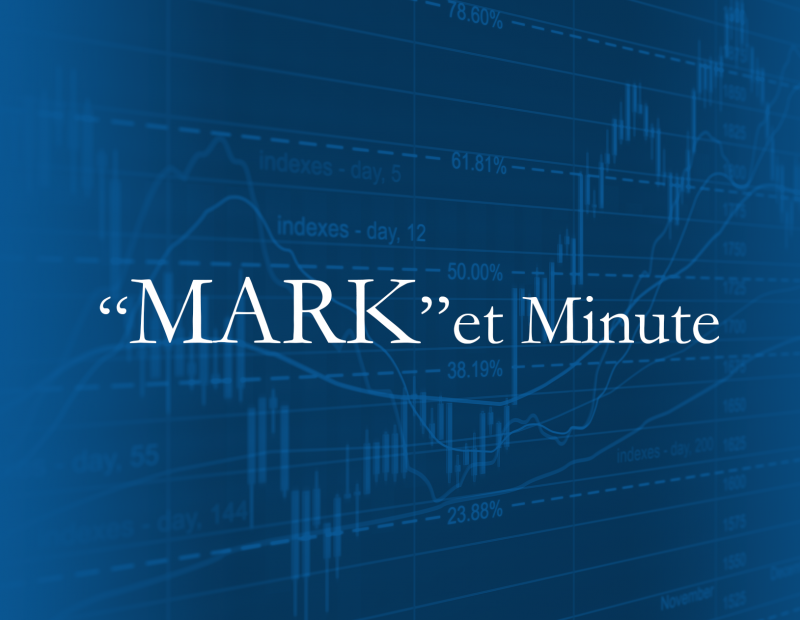Investment Commentary – February 24th, 2016
Market Indices as of Market Close February 24th, 2016
Dow 16,485 (-5.39% YTD)
S&P 1,930 (-5.58% YTD)
NASDAQ 4,543 (-9.28% YTD)
Global Dow 2,139 (2,033 52 week low /2,644 high)
10-year Treasury 1.87 (1.72 52 week low /2.50 high)
Gold 1,230 ($1,047 52 week low /high $1,264)
Oil $32.27 ($27.56 52 week low /high $65.69)
Wall Street stages a comeback as oil ends higher
U.S. stocks on Wednesday swung into positive territory in the wake of weak economic data as crude prices rebounded.
“Oil is today’s primary catalyst. The correlation between equities and oil is over 90%,” said Kent Engelke, chief economic strategist at Capitol Securities Management.
“Markets are also on edge because of bank loans to the oil industry, a fear I think is vastly overblown, but the narrative is increasing in intensity,” he said.
The S&P 500 SPX, +0.44% rose 9 points, or 0.5%, to 1,930 with materials and energy stocks underpinning the rebound.
The Dow Jones Industrial Average DJIA, +0.32% surged 57 points, or 0.3%, to 16,488, led by gains in United Technologies Corp. UTX, -0.41% up 2.2% and Apple Inc. AAPL, +0.06% 1.4% higher.
Meanwhile, the tech-heavy Nasdaq Composite COMP, +0.87% rose 39 points, or 0.9%, to 4,542.
Oil futures settled up 0.9% but saw volatile trade after data from the U.S. Energy Information Administration showed a rise in weekly crude-oil supplies by 3.5 million barrels but also indicated a decline in crude production.
Oil had briefly dropped nearly 4% earlier after Saudi Arabia Tuesday dashed hopes of a production cut to tackle a supply glut in the international oil markets. Brent LCOJ6, +3.64% reversed earlier losses to jump 2.8%.
A reading on February’s activity in the U.S. services sector dropped Wednesday to the lowest level in nearly 2½ years, offering a worrying signal that weakness in manufacturing may have spread.
What should investors make of the 2016 U.S. elections?
The presidential primaries have been dominating headlines, but what does it all mean for your portfolio? Historically not much, but a handful of sectors may trade on the news.
Russ Koesterich explains.
“Well, as we get into the primary season we’re getting more and more questions about what the election means for the markets, for stocks in particular. Specifically for many investors outside of the United States they’re trying to grapple with this very unconventional and unusual primary season. At the headline level, it probably means less than people think. If you go back, you look at history, the reality is market returns are not that different, whether there’s a Republican in the office or a Democrat. They’re not that different if there’s a divided government or united government. So I don’t think that the outcome of the election is going to drive the broader market. That said, there are parts of the market that will be affected. So watch healthcare stocks. There will be a lot of talk about drug pricing. Watch the energy sector. Watch utility companies. Watch coal companies. These are some of the parts of the market that I do think will trade in accordance with the election outcome.”
THIS DAY IN FINANCIAL HISTORY
February 25th 1913: on this day in 1913 the ratification of the Sixteenth Amendment effectively cleared the way for the creation of the income tax.
The views presented are not intended to be relied on as a forecast, research or investment advice and are the opinions of the sources cited and are subject to change based on subsequent developments. They are not a recommendation, offer or solicitation to buy or sell any securities or to adopt any investment strategy.
http://www.marketwatch.com/story/dow-futures-slump-more-than-100-points-as-oil-dives-again-2016-02-24?dist=afterbell
https://www.blackrock.com/investing/insights/video/what-should-investors-make-of-the-2016-elections
http://www.econedlink.org/economic-calendar.php?month=2


Leave A Comment